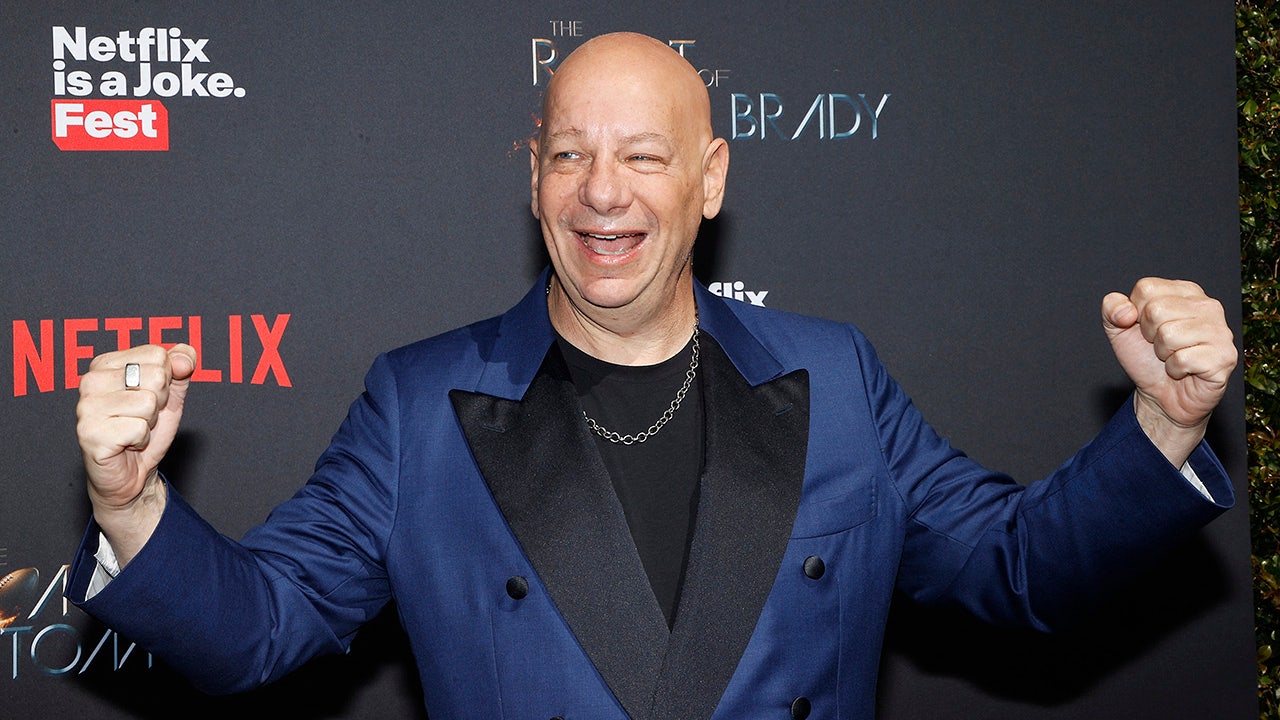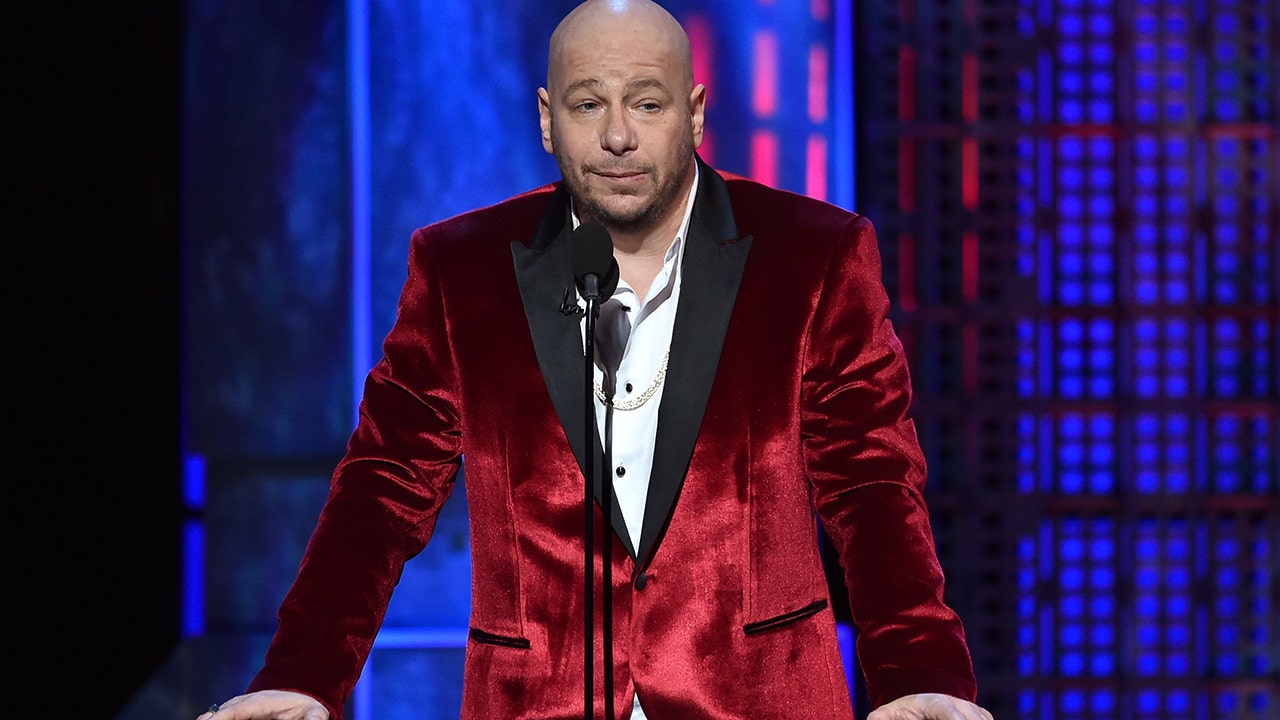Does Jeff Ross Really Have Cancer? Unraveling The Truth About Celebrity Health Rumors
It's a question many fans have typed into their search bars lately: "does Jeff Ross really have cancer?" When news or whispers about a beloved public figure's health begin to circulate, people naturally feel a strong pull to know what's true. This kind of inquiry, actually, shows how much we care about the personalities who bring us joy and laughter, like the famous Roastmaster General himself.
The speed at which information travels today, especially on the internet, means that rumors can take hold very quickly. Sometimes, a simple misunderstanding or a piece of out-of-context information can spiral into widespread speculation. It's a bit like a game of telephone, where the original message gets changed with each retelling, you know?
This article will look closely at the question of Jeff Ross's health. We will explore where these kinds of rumors often come from and, more importantly, discuss how you can figure out what's real and what's just talk. Our goal is to give you a clearer picture, so you can separate fact from fiction when it comes to news about public figures.
Table of Contents
Introduction
Who is Jeff Ross? A Quick Look at the Roastmaster General
Jeff Ross: Personal Details & Bio Data
The Rumor Mill: Does Jeff Ross Really Have Cancer?
Tracing the Origins of the Speculation
Official Statements and Reliable Sources
Why Health Rumors About Public Figures Spread
The Speed of Information (and Misinformation)
The Role of Social Media
How to Verify Celebrity Health News
Checking for Credible Sources
Looking for Official Confirmation
Understanding the Difference Between "Do" and "Does" When Verifying Information
Frequently Asked Questions About Jeff Ross's Health
Wrapping Things Up: Staying Informed
Who is Jeff Ross? A Quick Look at the Roastmaster General
Jeffrey Ross, known to many as Jeff Ross, has carved out a distinct place in the world of comedy. He is, in a way, a master of the comedic roast, a specific type of performance where comedians playfully insult a guest of honor. His quick wit and fearless delivery have earned him the nickname "Roastmaster General."
He has appeared on numerous Comedy Central roasts, taking on famous faces from Donald Trump to Justin Bieber. Beyond roasts, Jeff Ross has acted in films and television shows, and he performs stand-up comedy regularly. His style is often edgy, but it typically comes from a place of affection for his targets, which is why people appreciate his work, you know?
Fans really connect with his unique approach to humor, and his presence often means a show will be full of sharp, memorable lines. He has built a strong following over many years, and his career continues to evolve. It's quite something to see how he manages to keep audiences laughing with his bold humor, actually.
Jeff Ross: Personal Details & Bio Data
| Full Name | Jeffrey Ross Lifshultz |
| Known As | Jeff Ross, The Roastmaster General |
| Occupation | Comedian, Actor, Writer, Producer |
| Born | September 13, 1965 (age 58 as of 2024) |
| Birthplace | Newark, New Jersey, U.S. |
| Genre | Stand-up comedy, Roast comedy |
| Years Active | 1980s–present |
The Rumor Mill: Does Jeff Ross Really Have Cancer?
The question about Jeff Ross's health, specifically whether he has cancer, has popped up quite a bit online lately. It's a serious concern, and people want to know the truth. When a rumor like this starts to spread, it's pretty natural for fans to worry and seek out definitive answers.
We've looked through many public statements and reliable news sources to get to the bottom of this. As of today, there have been no official announcements from Jeff Ross himself or his representatives confirming any cancer diagnosis. This is a very important point, because usually, when a public figure faces a serious health challenge, some kind of statement is made, you know?
Without official word, any claims about his health remain unverified speculation. It's always best to rely on direct information from the person involved or their official channels. This helps avoid spreading false information, which can cause unnecessary distress for everyone involved, so.
Tracing the Origins of the Speculation
Sometimes, rumors like this begin from very small things. A celebrity might look a little different in a photo, or perhaps they cancel an appearance for reasons not fully explained. These small events can get misinterpreted and then, more or less, grow into big stories that aren't true. It's a common pattern with celebrity news, you see.
For Jeff Ross, there isn't one clear, widely reported incident that kicked off this specific cancer rumor. It seems to have been a gradual build-up of online whispers, perhaps fueled by social media posts or comments that lacked any real basis. These kinds of unconfirmed stories can gain traction because people are curious, and they spread quickly through shares and reposts, you know?
It's important to remember that not everything you read online is accurate. A single post from an unknown account can sometimes get amplified far beyond its actual credibility. This is why tracing the exact start of a rumor can be tough, but understanding its likely path is helpful, too.
Official Statements and Reliable Sources
When it comes to a public figure's health, the most dependable information comes directly from them or their authorized representatives. This could be a statement posted on their official social media, a press release from their publicist, or an interview with a very reputable news outlet. These are the sources that usually carry the most weight, you know?
In the case of Jeff Ross, there has been no such official communication regarding a cancer diagnosis. His public appearances and social media activity continue to show him working and engaging with his audience as usual. This lack of an official statement, in a way, speaks volumes, as major health news is typically shared if it is true.
News organizations that are respected and known for their factual reporting also have a role here. They typically wait for official confirmation before publishing sensitive health information about celebrities. If a major news outlet hasn't reported it, then it's highly likely the rumor is unfounded, so.
Why Health Rumors About Public Figures Spread
Health rumors about famous people spread for a mix of reasons, honestly. There's a natural human interest in the lives of those we admire or follow. When someone is in the public eye, their personal well-being becomes a topic of general curiosity. This is just how it is, you know?
People also feel a connection to celebrities, almost as if they know them personally. So, when a health rumor surfaces, it can feel like news about a friend or family member, prompting a strong emotional response. This emotional connection often drives people to share what they hear, sometimes without checking if it's true, too.
The very nature of how we get our news today also plays a big part. With so many platforms and so much information, it's easy for things to get lost in the shuffle or for false stories to gain traction. It's a bit of a challenge to keep up, actually.
The Speed of Information (and Misinformation)
The internet has truly changed how quickly information moves. A piece of news, or even just a whisper, can travel across the globe in seconds. This speed is great for sharing important updates, but it's also a double-edged sword when it comes to misinformation, you know?
False stories, especially those that are sensational or shocking, can spread like wildfire before anyone has a chance to verify them. This happens because people often share things they find interesting or surprising, without first checking the facts. It's a common human tendency, really.
Once a rumor gains momentum, it becomes much harder to stop. Even if the original source is debunked, the story might continue to circulate because it has already reached so many people. This makes it very important to be careful about what we share, so.
The Role of Social Media
Social media platforms are a primary driver for the spread of celebrity health rumors. These sites are designed for quick sharing and interaction, which means a rumor can go viral with just a few clicks. Everyone can be a publisher, which is a great thing in many ways, but it also means there's less gatekeeping on what gets shared, you know?
On platforms like X (formerly Twitter), Facebook, and Instagram, posts can be shared and retweeted thousands of times in a very short period. This rapid sharing often happens without any real fact-checking by the people doing the sharing. It's more about the immediate reaction or the desire to be the first to share something, apparently.
The algorithms on these platforms also tend to favor engaging content, which can sometimes mean that sensational or emotionally charged rumors get more visibility. This creates a cycle where unverified stories are seen by more people, leading to even more sharing. It's a complex system, honestly.
How to Verify Celebrity Health News
Figuring out what's true about celebrity health can feel like a puzzle sometimes. With so much information flying around, it's easy to get confused. However, there are some pretty clear steps you can take to make sure you're getting the real story. It's about being a smart consumer of news, you know?
The first thing to do is take a deep breath and not react immediately. When you see a shocking headline, your first instinct might be to believe it or share it. But pausing for a moment can save you from spreading something that isn't true. This little pause can make a big difference, actually.
Then, it's about looking for solid proof. Just like you wouldn't believe a big claim without some evidence, you shouldn't believe a health rumor without it either. This process helps you become a more informed person overall, so.
Checking for Credible Sources
The source of information is extremely important. When you hear something about a celebrity's health, ask yourself: Where did this news come from? Is it a well-known news organization with a history of accurate reporting? Or is it a random social media account or a website you've never heard of before, you know?
Reputable news outlets usually have editorial standards and fact-checkers. They will typically cite their sources and correct mistakes if they make them. Websites that rely on sensational headlines, anonymous sources, or seem to exist just to spread gossip are usually not reliable. It's pretty easy to spot the difference once you start looking, too.
Always try to find the original report. If a story is being shared widely, try to trace it back to where it first appeared. Often, you'll find that the original source is either unverified or has been misinterpreted along the way. This kind of detective work really helps, honestly.
Looking for Official Confirmation
For serious health news about a public figure, official confirmation is the gold standard. This means a statement directly from the celebrity, their family, their manager, or their publicist. These are the people who are in a position to know the facts and have the authority to share them. Anything else is, more or less, just talk, you know?
Check the celebrity's official social media pages, their official website, or press releases from their management. If they have a publicist, look for statements issued through them. Major news outlets will typically report on these official statements, so if you see a story, check if it references one.
If there's no official word, then the rumor is likely false or at least unconfirmed. It's very rare for a significant health issue to remain completely private if it's being widely discussed online. So, the absence of an official statement can often be a strong indicator, actually.
Understanding the Difference Between "Do" and "Does" When Verifying Information
When you're trying to figure out if a piece of information is true, you need to ask yourself, "Does this source really say that?" or "Do the facts line up?" It's a bit like figuring out when to use "do" or "does" in a sentence – it depends on the subject of your sentence, you know? Just as the correct form to use depends on the subject, the truth of a rumor depends on its subject, which is the evidence.
For example, if the subject is a single, official statement, you'd ask: "Does that statement actually confirm the rumor?" If the subject is multiple pieces of evidence, you'd ask: "Do these pieces of evidence support the claim?" Understanding when a statement "does" hold weight, or when it "does not," is pretty important for speaking and writing about the truth, actually.
The "he/she/it" form of "do" is "does," and it's used with singular subjects. So, "Does the rumor have any real basis?" or "Does the official statement confirm it?" When you're talking about multiple sources or facts, you use "do." For example, "Do all the reports agree?" or "Do the facts support this idea?" This simple linguistic rule, in a way, mirrors the critical thinking process needed for verifying news. It helps you focus on whether the singular source "does" confirm something, or if multiple sources "do" confirm it, so.
It's about applying that same logical thought process to the information you're consuming. You're trying to figure out if the subject (the rumor, the source, the evidence) "does" or "does not" stand up to scrutiny. This understanding is key for speaking and writing about English correctly, and similarly, it's key for speaking and writing about the truth correctly, too.
Frequently Asked Questions About Jeff Ross's Health
Many people have similar questions when rumors about a public figure's health start to circulate. Here are some common inquiries about Jeff Ross's health and the current situation, you know.
Is Jeff Ross currently sick?
Based on all available public information and official statements, there is no indication that Jeff Ross is currently sick with cancer or any other major illness. He continues to perform and appear publicly, which suggests he is in good health, honestly.
Has Jeff Ross made any statements about his health?
Jeff Ross has not made any public statements or announcements regarding a cancer diagnosis. His social media channels and public appearances do not show any signs of him addressing such a health concern, which is pretty typical if a rumor is false, so.
Where can I find reliable news about Jeff Ross?
For reliable news about Jeff Ross, always check his official social media accounts (like his verified X or Instagram profiles), his official website, or reputable entertainment news outlets that cite official sources. Avoid relying on gossip sites or unverified social media posts, you know? You can also learn more about Jeff Ross on our site, and link to this page for more celebrity news.
Wrapping Things Up: Staying Informed
The question "does Jeff Ross really have cancer?" is a prime example of how quickly health rumors can spread about public figures. It highlights the importance of being thoughtful about the information we encounter online. It's very easy to get caught up in the excitement or worry of a trending story, you know?
But by taking a moment to check your sources and look for official confirmation, you can play a big part in stopping the spread of misinformation. Always remember that direct statements from the person or their representatives are the most trustworthy. This helps protect both the public figure and the people who care about them from unnecessary distress, so.
Staying informed means seeking out facts and being critical of what you read. It's a skill that serves us all well in today's fast-moving information world. We hope this has given you a clearer picture and some helpful tools for the future, too.
- Milo Manheim Dating
- Winnie Hollman
- Movie Ruz
- Hanalei Swan The 30m Shark Tank Deal She Turned Down Ndash What Happened
- Harry Connick Jr Stroke

Jeff Ross Recovering After Ice Cream Treat Lands Him In The Hospital

Comedian Jeff Ross rejects cancel culture, says comedy can't be

Super Bowl ad star Jeff Ross says people still want comedy 'right to